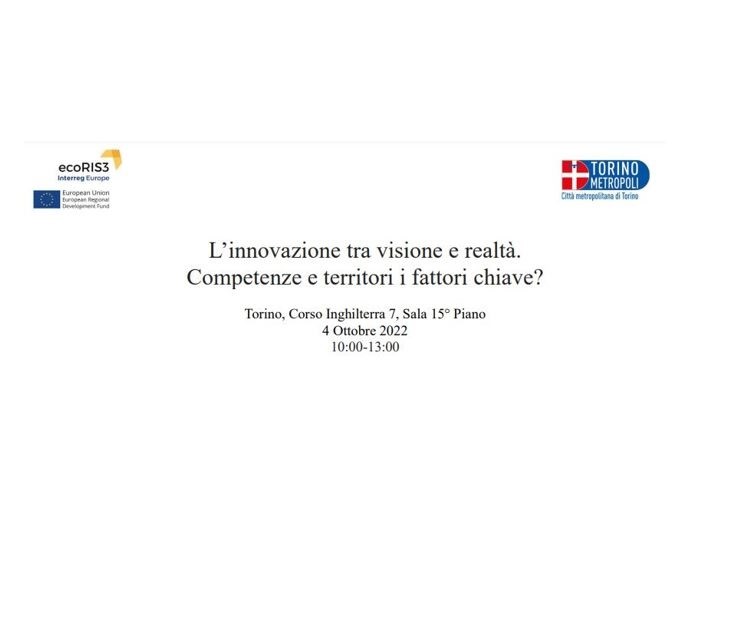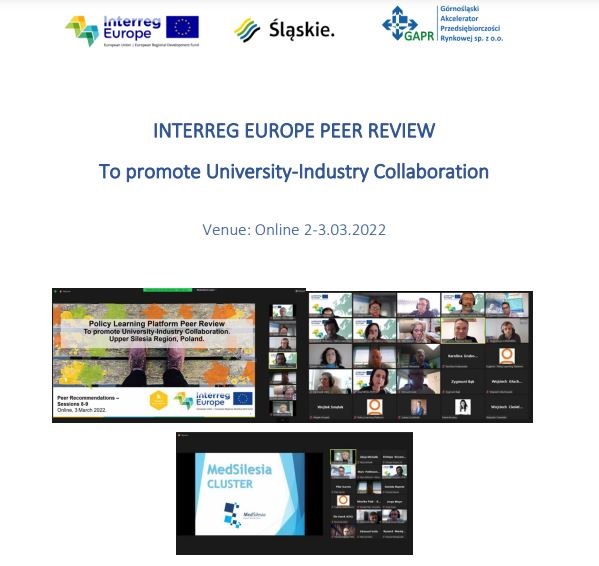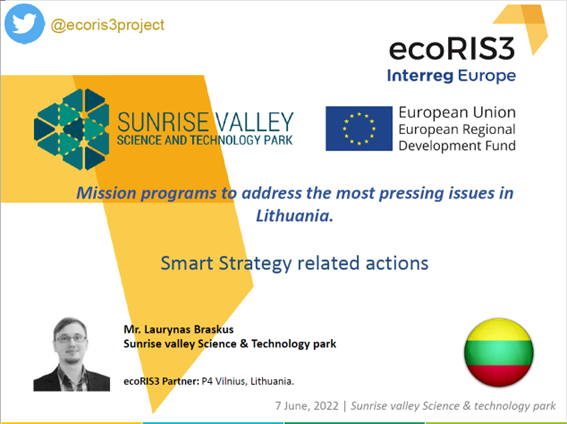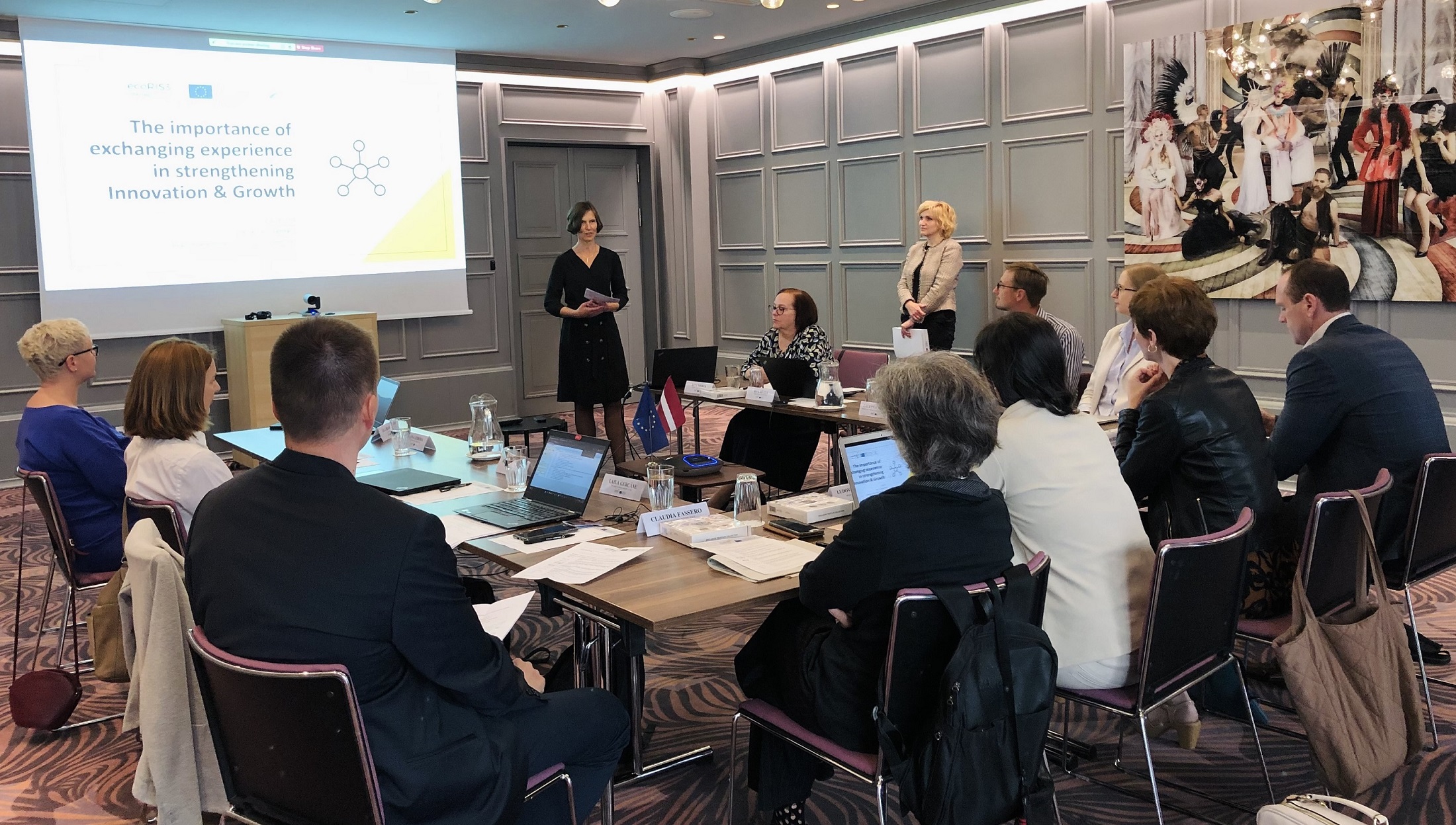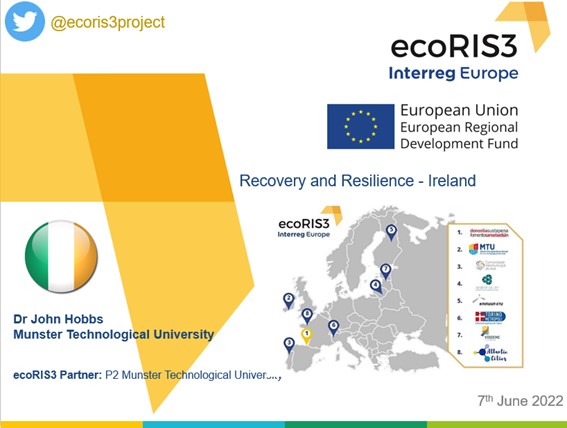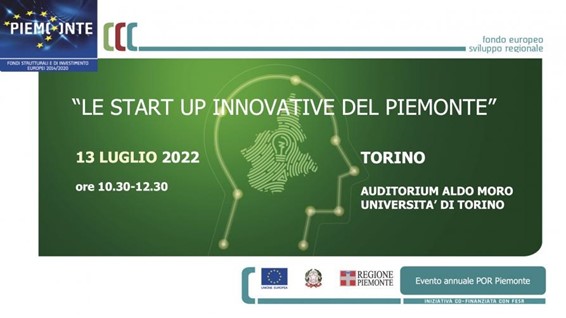On the 7th and 8th of June 2022, the final ecoRIS3 conference was held in Riga (Latvia) to discuss how to overcome the escalation of crises, including – Brexit, COVID-19, the Russia-Ukraine war, and its resulting sanctions.
During the meeting, Dr. oec. Olegs Krasnopjorovs, a Chief Economist of the Monetary policy department of the Bank of Latvia, in his presentation, outlined Post-Covid Economic Development and Challenges, also discussing how the labour market came out of the Covid-19 pandemics, how Russia’s invasion in Ukraine affects macroeconomic forecasts, and the long-term macroeconomic challenges in Latvia.
Covid-19 overall impact on the labour market
He emphasized that the overall impact of pandemics on the labour market was limited, but it varied substantially by sectors, occupations, and population groups. Low-income workers were affected the most. Massive state support programs prevented a rise of unemployment and income inequality.
Russia’s invasion in Ukraine
Russia's invasion in Ukraine calls for a revision of GDP and inflation forecasts. However, unemployment forecasts changed little. According to him, the impact of Ukraine's refugee influx on the Latvian labour market is expected to be limited. It is estimated that approx. 30 ths. Ukraine refugees registered in Latvia (1.5% of the Latvian population).
Long-term challenges in Latvia
Skills mismatch and structural unemployment are long-term problems that need to be addressed, rooted in low levels of lifelong learning, digital skills, and health. Skill mismatches and structural unemployment is decreased over the last 15 years but increased somewhat during the pandemics.
During the meeting, the project partners were addressed by PHD. oec. cand. Līga Brasliņa, a representative of the University of Latvia, with a speech on the trends and impacts of pandemics and war.
According to her, key determinants in the economic and geopolitical situation to discuss are the war in Ukraine and economic sanctions, China's economy's significant slowdown due to Covid-19 and the war in Ukraine, and the geopolitical risk of war escalation.
The war in Ukraine causes a significant downgrade in the global economic outlook. It reduces economic growth and raises inflation. Major commodity supply shocks have worsened the inflation outlook. Supply chain problems and rising energy prices drive producer price growth.
Some main factors shaking inflation (2022-2023) are higher energy, food, and other commodity prices, a pandemic-driven shift from services to goods consumption, lower business investment in supply infrastructure, and ongoing supply chain restrictions during the pandemic.
Also, she outlined how COVID 19 pandemic and emerging technologies change the nature of work and skills, highlighting the hybrid working model, more flexible work arrangements, digital technologies and automation, employee health and wellbeing, and an agile work environment.
Project partners discussed their experiences, what can be learned from each other, and how to transfer best practices most effectively. According to Laila Gercāne, Head of Development and Project Department of Vidzeme Planning Region, one key takeaway for Vidzeme Region is - clustering. Clusters as a tool for regional development are essential and should serve the region's needs (not vice versa).


